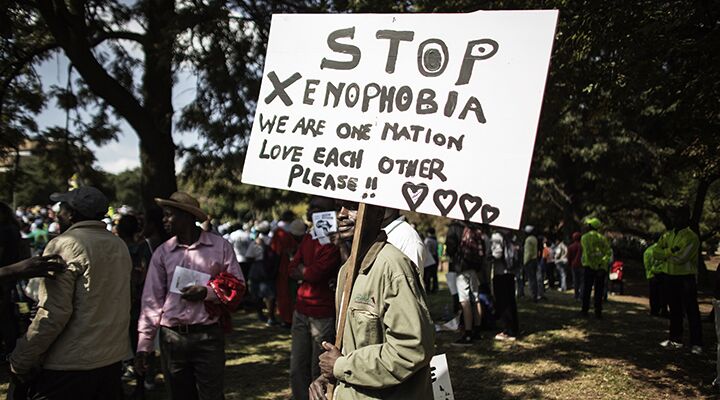
Xenophobic Violence Hits South Africa’s Major Cities
Antiforeigner protesters killed seven people in the major cities of Durban and Johannesburg in a wave of violence that swept South Africa in late April.
More than 5,000 others—most of whom were economic refugees—fled the country in buses back to their home countries. “It is better to be poor than be hunted like dogs because you are a foreigner,” Malawian national Agnes Salanje told Agence France-Presse. “I will not go back.”
The protesters also vandalized foreign-owned businesses, and the South African Army was compelled to deploy as a “last resort,” military officials said. President Jacob Zuma told the South African Parliament on Monday that the Army will remain on the ground until the end of June.
Analysts have typically attributed the causes of such attacks to a pervading sentiment that foreigners deprive South African citizens of jobs and even of spouses to marry.
The last time foreigners were attacked on such a scale was in 2012, when 120 people were killed and 7,500 displaced.
The trigger for April’s xenophobic outburst has been attributed to remarks made by Zulu tribal king Goodwill Zwelithini. In a speech in March, the Zulu tribal king charged that “immigrants must take their bags and go where they come from.”
South African media assessed that the protesters interpreted Zwelithini’s comments as a call to violently remove foreigners, but the tribal leader claimed the media misconstrued his words. “[I]f the reports that I sparked the recent xenophobic attacks were true, this country would be reduced to ashes,” he commented, apparently alluding to South Africa’s volatility and his own level of influence.
Commenting on the military’s “last resort” deployment, Economic Freedom Fighters leader Julius Malema said, “It is clear that the [African National Congress] government is losing control over society and [is] now resorting to extreme measures in the same manner done by the apartheid regime.” Malema, who has swayed masses to violence before, also said, “The crisis that confronts society is primarily a political crisis born of politicians who have failed to provide jobs for the people of South Africa, and who have failed to educate the nation on coexistence of all Africans, including socioeconomic migrants.”
For more on South Africa, check out the Additional Reading section below.
